20 Books Published by University of Virginia Press on AALBC — Book Cover Collage
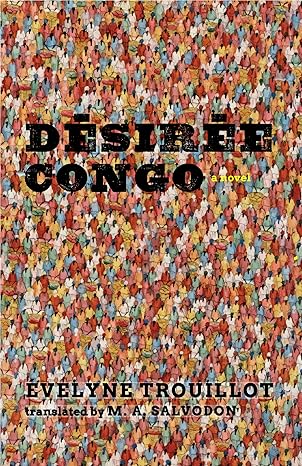 Desiree Congo
Desiree Congo
by Évelyne TrouillotUniversity of Virginia Press (Oct 23, 2024)
Read Detailed Book Description
CARAF Books: Caribbean and African Literature Translated from French
Désirée Congo is a riveting, powerful, and profoundly original novel set in the final years of the Haitian Revolution at the dawn of the nineteenth century. In this richly textured work, Trouillot—one of the leading voices of the francophone literary world—constructs an intricate narrative web from the varied experiences of freedmen and women, maroons, enslaved African people and their Creole children, as well as French planters and white smallholders in colonial Saint-Domingue at a historical moment of unthinkable upheaval.
It is a moving, lyrical book whose strikingly realized characters enrich our understanding of the last confrontations between the Haitian revolutionaries and Napoleon’s imperial forces—a conflict that resulted in the success of the largest slave revolt in recorded history and the independence of the first Black state in the western hemisphere.
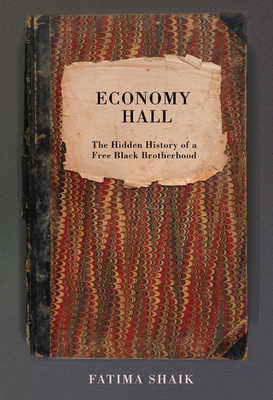 Economy Hall: The Hidden History of a Free Black Brotherhood
Economy Hall: The Hidden History of a Free Black Brotherhood
by Fatima ShaikUniversity of Virginia Press (Mar 15, 2021)
Read Detailed Book Description
One hundred years of elaborate handwritten journals recovered from the trash reveal early Black activism in a new book, Economy Hall: The Hidden History of a Free Black Brotherhood by Fatima Shaik.
Rescued from the back of a pickup truck by Shaik’s father in the 1950s, the twenty-four detailed ledgers, languished in the closet of her family’s historic Seventh Ward home for fifty years. Shaik, a journalist and now former Assistant Professor at St. Peter’s University, set out to find context for the ledgers dated 1836-1935. She scoured journal articles and books, real estate purchases, notarial acts and census records at private and public archives.
The result is a history of Black men and their lives in the Société d’Economie et d’Assistance Mutuelle, a benevolent organization. They were the elite of a thriving free community in New Orleans prior to the Civil War. Statistics show that for the first four decades of the nineteenth century, almost half of the city’s Black people were free. This compares to 14% nationwide prior to 1865.
The Economie’s mission was “to help one another and teach one another while holding out a protective hand to suffering humanity,” Shaik says. “I came to realize that the Economie journals were among the few surviving primary sources written by the community activists themselves,” adds Shaik.
Economy Hall: The Hidden History of a Free Black Brotherhood is framed by the story of Ludger Boguille, the Society’s longtime Secretary. Images in the book display his beautiful script “as elegant as a satin-stitched monogram on a linen handkerchief,” writes Shaik. A son of Haitian immigrants, Boguille blossomed from an introspective poet and 1840s schoolteacher to an advocate for Equal Rights. He narrates his escape from a bloody massacre in 1866, speaks at the first Colored Convention joining the formerly enslaved and the Black moneyed-class, and becomes the grand marshall of a citywide Emancipation celebration in New Orleans’ iconic Congo Square.
Some Economists were Creoles, a generation of non-Indigenous children born in colonial Louisiana. Economy members also commuted to France, Italy, Haiti, and Mexico. “All were successful and civic-minded. They created a private library and supported one another financially and emotionally beginning in 1836. Later, Economistes fought to preserve the Union, marched for suffrage, joined the government during the heady days of Reconstruction, and waged bloody battles against the fake news of the late 19th century that set the Civil Rights struggle back for decades. The records expand the narrative of Blacks as active participants in the major social and political events of the United States and offer additional information about their terms of engagement.”
Their 1857 president, Pierre Casanave, articulated their resolve: “May our behaviors always strike down our oppressors, so that, in each of us, our miserable enemies may discover the proof that we understand that man was born to live with his equals.”
The members built a meeting hall in 1857, Salle d’Economie, later called Economy Hall in English. The New Orleans Tribune, wrote in 1867 that Economy Hall was “where the oppressed and the friends of liberty first met in council in Louisiana” and compared the location to Faneuil Hall in Boston, which hosted civic meetings to promote the ideals of American freedom.
Members also filled the Economy Hall with music—orchestra performances, charity balls, and, later, dance parties with Kid Ory and Louis Armstrong. The Carnegie Hall of jazz, Economy Hall stood until 1965. Now, a tent at the New Orleans Jazz and Heritage Festival bears its name and draws almost a half-million annual visitors.
The hall was sold to a church in 1945 and was demolished after hurricane damage in 1965. The ledgers show the way that Black men in the distant past organized to support Black lives, a history that was erased and largely forgotten.
“The Economie journals communicated power, ambition, loyalty, and optimism,” Shaik concludes. “And yet, their stories had advanced and receded from American society and international attention with the winds of commerce and social awareness.”
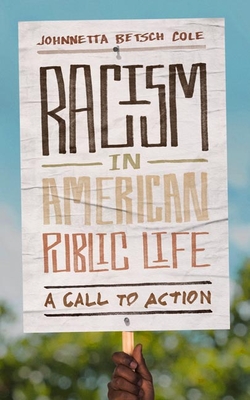 Racism in American Public Life: A Call to Action
Racism in American Public Life: A Call to Action
by Johnnetta Betsch ColeUniversity of Virginia Press (Feb 16, 2021)
Read Detailed Book Description
For some in our society, diversity is a threat. Others feel society should be more inclusive, if only out of fairness. But as Johnnetta Cole argues in her new book, embracing diversity and inclusiveness is more than a virtuous ideal; it is essential to a healthy, productive society.
Focusing on higher education and other arenas of cultural development, Cole explores our institutions’ vulnerability to the influence of racism and the wider implications for American society. At the core of Cole’s argument is the belief that increasing the representation of historically marginalized groups on college campuses, and in museums, media, and other institutions is, like the liberal arts, vitally important to social progress. Accompanying Cole’s urgent calls to implement social change are vividly rendered experiences from her own remarkable life. Cole issues a challenge for courageous conversations about race and racism and places unique responsibility and accountability on institutions of higher education in leading these conversations.
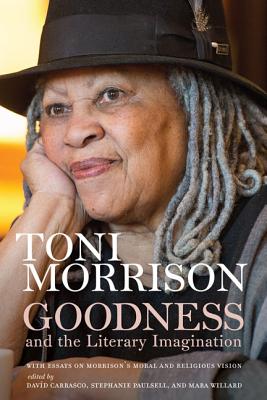 Goodness and the Literary Imagination: Harvard’s 95th Ingersoll Lecture with Essays on Morrison’s Moral and Religious Vision
Goodness and the Literary Imagination: Harvard’s 95th Ingersoll Lecture with Essays on Morrison’s Moral and Religious Vision
by Toni MorrisonUniversity of Virginia Press (Oct 15, 2019)
Read Detailed Book Description
"The publication of this extraordinary book could not have arrived at a more propitious moment. At a time when the country as a whole seems tormented by the corrosive presence of a new kind of evil that is trying to banish any memory, much less evidence, of its opposite, Goodness and the Literary Imagination reminds readers of evil’s opposite, but in forms that Morrison’s fiction renders again strange. Its publication should be treated as a major event; its contribution to American literary and religious studies is absolutely assured."
——Giles Gunn, University of California, Santa Barbara, Emeritus, author of The Pragmatist Turn: Religion, the Enlightenment, and the Formation of American Literature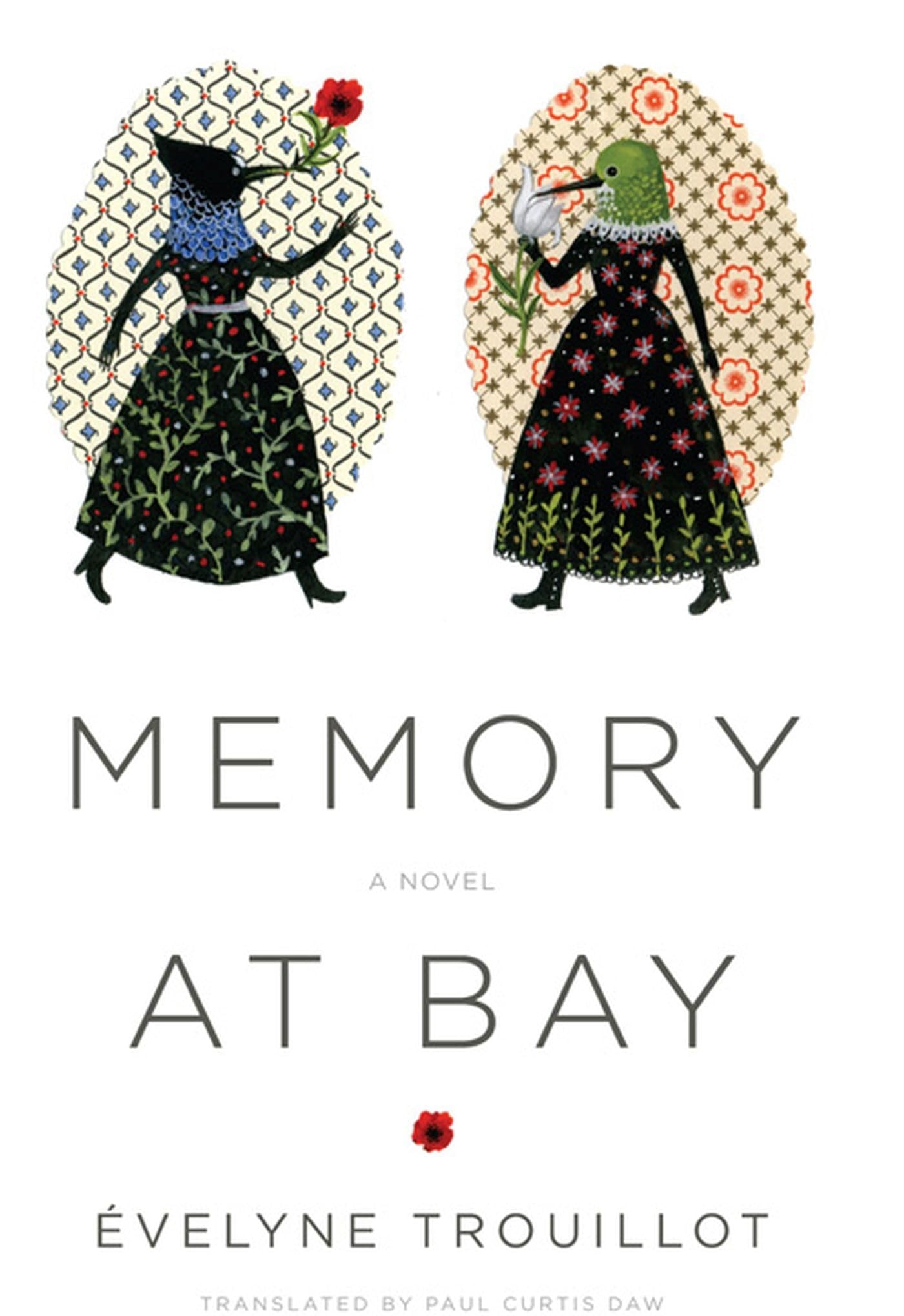 Memory at Bay
Memory at Bay
by Évelyne TrouillotUniversity of Virginia Press (Aug 18, 2015)
Read Detailed Book Description
Winner of the prestigious Prix Carbet—an award won by such distinguished authors as Maryse Condé, Jamaica Kincaid, and Raphaël Confiant—Memory at Bay is now available in an English translation that brings to life this powerful novel by one of Haiti’s most vital authors, Évelyne Trouillot.
Trouillot introduces us to a bedridden widow of a notorious dictator (in effect, a portrait of Papa Doc Duvalier) and the young émigré who attends to her needs but who harbors a secret—the bitter loss she feels for her mother, a victim of the dictator’s atrocities. The story that unfolds is a deftly plotted psychological drama in which the two women in turn relive their radically contrasting accounts of the dictator’s regime. Partly a retelling of Haiti’s nightmarish history under Duvalier, and partly an exploration of the power of memory, Trouillot’s novel takes a suspenseful turn when the aide contemplates murdering the old widow.
Memory at Bay was praised by the Prix Carbet committee for the way it treats the enigmas of destiny and for a pairing of characters whose voices bring the narrative to the edge of the ineffable.
CARAF Books: Caribbean and African Literature Translated from French
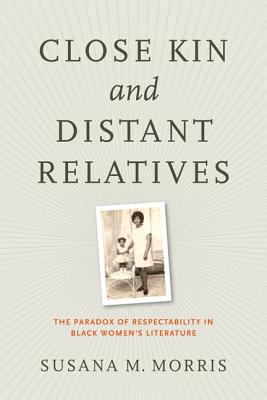 Close Kin and Distant Relatives: The Paradox of Respectability in Black Women’s Literature
Close Kin and Distant Relatives: The Paradox of Respectability in Black Women’s Literature
by Susana M. MorrisUniversity of Virginia Press (Feb 04, 2014)
Read Detailed Book Description
The “black family” in the United States and the Caribbean often holds contradictory and competing meanings in public discourse: on the one hand, it is a site of love, strength, and support; on the other hand, it is a site of pathology, brokenness, and dysfunction that has frequently called forth an emphasis on conventional respectability if stability and social approval are to be achieved. Looking at the ways in which contemporary African American and black Caribbean women writers conceptualize the black family, Susana Morris finds a discernible tradition that challenges the politics of respectability by arguing that it obfuscates the problematic nature of conventional understandings of family and has damaging effects as a survival strategy for blacks.
The author draws on African American studies, black feminist theory, cultural studies, and women’s studies to examine the work of Paule Marshall, Jamaica Kincaid, Edwidge Danticat, and Sapphire, showing how their novels engage the connection between respectability and ambivalence. These writers advocate instead for a transgressive understanding of affinity and propose an ethic of community support and accountability that calls for mutual affection, affirmation, loyalty, and respect. At the core of these transgressive family systems, Morris reveals, is a connection to African diasporic cultural rites such as dance, storytelling, and music that help the fictional characters to establish familial connections.
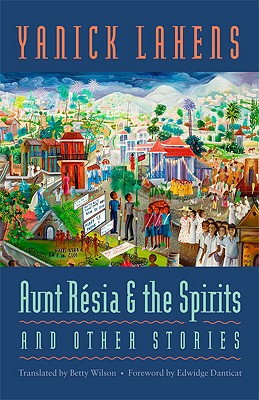 Aunt Résia and the Spirits and Other Stories
Aunt Résia and the Spirits and Other Stories
by Yanick LahensUniversity of Virginia Press (Feb 04, 2010)
Read Detailed Book Description
The Haiti of Yanick Lahens’s path-breaking short fiction is a country demanding our compassion as it reveals to us its horrors. For decades among the forefront of Haitian writers, Lahens has embarked on a renewal of the genre of short stories that she inherited from Caribbean―and especially Haitian―traditions. Through her elliptical and sharp style she succeeds in conveying the authenticity of her people’s tragic fight for survival within the scope of our shared human experience. Here is day-to-day life, packed with its myriad emotions, desires, and contradictions, against a backdrop of extraordinary circumstances.
The men and women glimpsed in Lahens’s stories are confronted with the overwhelming task of simply staying alive. "The Survivors" unfolds under the Duvalier dictatorship. The story, centered on a group of men who dream of somehow striking out against the regime, shows how fear is passed down from generation to generation. Life is no simpler in the post-Duvalier world of the title story, in which a young man is caught between a mother who lives a devout life filled with self-imposed restrictions and an aunt who religiously serves the spirits of Vodou but makes no apologies for working in the black market. The twelve-year-old girl who narrates "Madness Had Come with the Rain" finds herself swept up in a violent riot following the death of a modern Robin Hood. Lahens’s women, although they may act as the poto mitan (or "central pole") in family life and society, experience a particularly grim fate. In the eviction tale "And All This Unease" a beautiful girl reminisces about her happy childhood in the country in order to forget her current life as a prostitute.
Yanick Lahens presents testimonies, opens intimacies, sometimes offers hope, but always returns to the despair afflicting Haiti, because lying within it is the key to her country. The first collection of Lahens’s unforgettable short stories available in English, this volume will bring one of the most important voices in contemporary literature to the wider audience it deserves.
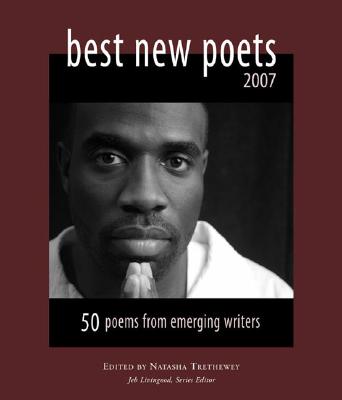 Best New Poets 2007: 50 Poems from Emerging Writers
Best New Poets 2007: 50 Poems from Emerging Writers
by Natasha TretheweyUniversity of Virginia Press (Nov 29, 2007)
Read Detailed Book Description
Praise for earlier editions:"Unlike novelists and bad-boy memoirists, emerging poets are unlikely to sprawl on Oprah’s couch, date starlets, or rouse bidding wars. With an alert ear for new voices, this anthology offers a different kind of validation: that of being well heard. The result is a vibrant smorgasbord…. [Best New Poets] bears evidence of the insistent inquiries of self and the world that drive poetry."—Foreword "[One] comes to realize that the adjectives ‘new’ and ‘emerging’ are mere technicalities in this instance. Although none of the poets included here have published a full-length book of poetry, many are MFA students or graduates, and chapbook authors, and most have already seen some of their poems published in the most renowned and exclusive journals in North America…. The result is a remarkably diverse mix of poems."—BookPleasures"It’s a nervy thing for an anthology to label itself Best New Poets, but once again this collection lives up to its name. It’s a rich and readable selection, reflecting no party-line aesthetic, and attesting to the formidable promise of the emerging generation."—David WojahnIn just three years Best New Poets has established itself as a crucial venue for rising poets and a valuable resource for poetry lovers. The only publication of its kind, this annual anthology is made up exclusively of work by writers who have not yet published a full-length book. The poems included in this eclectic sampling represent the best from the many that have been nominated by the country’s top literary magazines and writing programs, as well as some two thousand additional poems submitted through an open online competition. The work of the fifty writers represented here provides the best perspective available on the continuing vitality of poetry as it’s being practiced today.
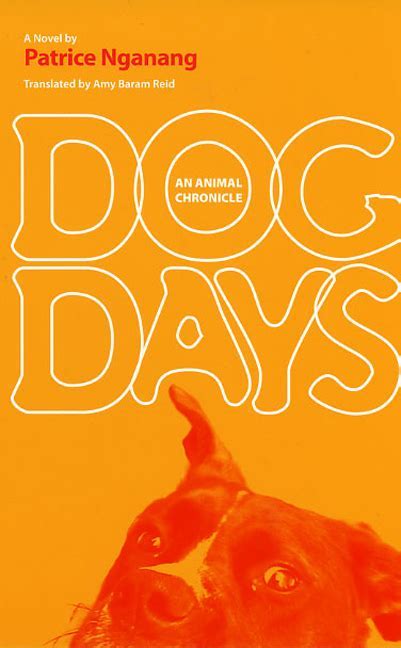 Dog Days: An Animal Chronicle
Dog Days: An Animal Chronicle
by Patrice NganangUniversity of Virginia Press (May 02, 2006)
Read Detailed Book Description
"I am a dog," the narrator of Patrice Nganang’s novel plainly informs us. As such, he has learned not to expect too much from life. He can, however, observe the life around him—in his case the impoverished but dynamic Cameroon of the early 1990s, a time known as les ann�es de braise (the smoldering years). When he isn’t limited by the length of his master’s leash, the perceptive, even ironic, Mboudjak wanders the streets of Yaounde, a capital city caught in the throes of social and political change. Only partly understanding the words spoken around him (the other dogs are as unreliable as the humans), Mboudjak relates an experience that not only evokes the wildly diverse language of the streets—a heady brew of French, Pidgin English, the indigenous Medumba, and the urban slang Camfranglais—but also reflects the elusiveness of meaning in politically uncertain times. Mboudjak is not alone in his confusion or in his hardship. The blows he receives from humans and the mocking laughter of other dogs are indicative of a larger pattern of abuse that indicts the ruling regime.
Despite its unflinching depiction of a seething, turbulent society, Dog Days is not a somber story; it is propelled by the humor that is Mboudjak’s greatest survival tool, and even by a certain optimism. In the vibrantly chaotic marketplaces, in the bustling energy of Massa Yo’s bar, and in the escalating political demonstrations, a brighter future for Cameroon can be glimpsed. This story told by a canine everyman offers something for any reader interested in freedom withheld and the early stirrings that will someday win it back.
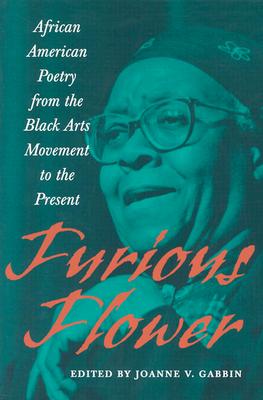 Furious Flower: African-American Poetry from the Black Arts Movement to the Present
Furious Flower: African-American Poetry from the Black Arts Movement to the Present
by Joanne V. GabbinUniversity of Virginia Press (Feb 13, 2004)
Read Detailed Book Description
The Furious Flower Conference of 1994 represented the largest gathering of African American writers at one event in nearly thirty years. In that crucial span of time, African American poetry had evolved into an art less overtly political and more introspective; it had also shown dramatic growth—both in the number of its readers and its practitioners.
As a second Furious Flower Conference prepares to convene, Joanne Gabbin has assembled a remarkable selection of works by the Furious Flower participants. The forty-three poets cover three generations, ranging from such established voices as Michael Harper, Nikki Giovanni, and the late Gwendolyn Brooks, in whose honor the conference was organized, to a host of rising young writers who are reimagining America in the language of a hip-hop nation.
Furious Flower provides a fascinating collective portrait of African American poetry at the close of the twentieth century—as well as an indication of where it may be headed as we enter the twenty-first. The book includes biographies of the contributors and a dynamic collection of performance photographs by C. B. Claiborne featuring many of the Furious Flower participants as they appeared at the original 1994 conference.
Contributors
- Gwendolyn Brooks
- Samuel Allen
- Adam David Miller
- Pinkie Gordon Lane
- Naomi Long Madgett
- Dolores Kendrick
- Garrett McDowell
- Raymond R. Patterson
- Alvin Aubert
- Amiri Baraka
- Sonia Sanchez
- Lucille Clifton
- Jayne Cortez
- Eugene B. Redmond
- Michael S. Harper
- Askia M. Touré
- Sterling D. Plumpp
- Toi Derricotte
- Everett Hoagland
- Haki R. Madhubuti
- Bernice Johnson Reagon
- Nikki Giovanni
- Jerry W. Ward Jr.
- Lorenzo Thomas
- Yusef Komunyakaa
- Kalamu ya Salaam
- Dorothy Marie Rice
- Lamont B. Steptoe
- Quo Vadis Gex-Breaux
- E. Ethelbert Miller
- Mona Lisa Saloy
- Afaa Michael Weaver
- Rita Dove
- Opal Moore
- Cornelius Eady
- Carole B. Weatherford
- Lenard D. Moore
- Sharan Strange
- Adisa Vera Beatty
- Elizabeth Alexander
- Jabari Asim
- Joel Dias-Porter (DJ Renegade)
- Thomas Sayers Ellis
- John Keene
- Natasha Trethewey
- Major Jackson
- Kevin Young
- Garrett McDowell
Published in association with the Center for American Places
 The Book of Numbers (The Virginia Bookshelf)
The Book of Numbers (The Virginia Bookshelf)
by Robert Deane PharrUniversity of Virginia Press (May 29, 2001)
Read Detailed Book Description
In the hardboiled tradition of Chester Himes and Walter Mosely, Robert Deane Pharr’s novel tells the tale of two black men, Dave and Blueboy, traveling waiters who establish themselves as numbers runners in a fictionalized Richmond of the 1930s. Published to great acclaim in 1969, The Book of Numbers centers on powerful themes of truth and illusion, myth and legend, and vividly conveys a sense of African American life on the periphery of white society. The new Virginia edition complements Pharr’s text with an Afterword by Washington Post editor Jabari Asim.
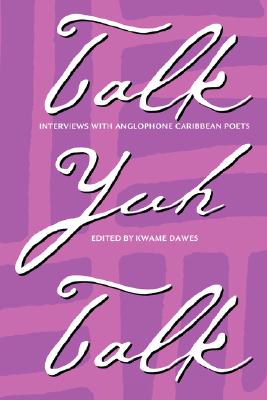 Talk Yuh Talk: Interviews With Anglophone Caribbean Poets
Talk Yuh Talk: Interviews With Anglophone Caribbean Poets
by Kwame DawesUniversity of Virginia Press (Dec 29, 2000)
Read Detailed Book Description
Before the Caribbean-inflected spoken-word poetry of the 1990s, epitomized by poetry slams at the Nuyorican Poets Café in Manhattan, there was reggae. In the past thirty years, most Caribbean poetry written in English has come to the shores of the United States on waves of music, in the lyrics of Bob Marley, Peter Tosh, and Burning Spear. Kwame Dawes, himself a musician and poet, is not surprised by this phenomenon. The region’s political and cultural awakening of the 1970s was fueled by a growing African consciousness, often in competition with the multiple traditions?European, Indian, Chinese?that have permeated many Caribbean nations for centuries. The influence of reggae has produced a poetry that is quite different from earlier work from the Caribbean, but this is only one more chapter in a tradition characterized by continuing tension with a diverse heritage.The interviews in Talk Yuh Talk reflect a range of Caribbean voices from several generations, from those poets influenced by a dynamic interplay between the popular culture of reggae, calypso, folk music, and "yard" theater to those whose work is closer to classical forms of literature and oral narrative. Kwame Dawes talks with many of the most important poets to have emerged from the Caribbean who are still writing today. The poets discuss their techniques, their situations as poets, and the challenges they face in the profession and in their craft. Well-known figures like Lorna Goodison, Grace Nichols, Kamau Brathwaite, Fred D’Aguiar, and Martin Carter share space with such lesser-known but equally important poets as Mervyn Morris and Kendel Hippolyte.In a specific introduction to each poet, Dawes offers a sense of what is important or meaningful about the poet’s work. He explores detachment with Mervyn Morris, intellectual rigor with David Dabydeen, the struggles of obscurity with Cyril Dabydeen, the poetics of surprise and the erotic with Grace Nichols, the reggae escape motif with Lillian Allen, ambivalence about Africa with James Berry, and more, talking with eighteen poets in all. By allowing them to speak in their own voices and by directing the questions along the lines of creative process and aesthetics, Dawes makes a compelling case for the strength of Caribbean poetry while offering a lively source of inspiration and information for practicing poets as well as critics.
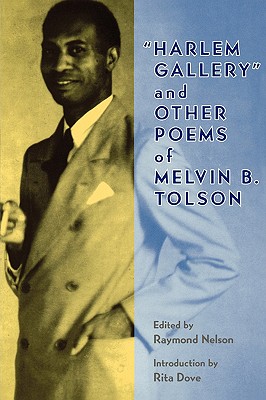 "Harlem Gallery" and Other Poems of Melvin B. Tolson
"Harlem Gallery" and Other Poems of Melvin B. Tolson
by Melvin TolsonUniversity of Virginia Press (Aug 01, 1999)
Read Detailed Book Description
The poet Melvin B. Tolson (1898-1966) was once recognized as one of black America’s most important modernist voices. Playful, fluent, and intellectually sophisticated, his poems stirred up significant praise, and some lively criticism, during his lifetime but have been out of print for decades and essentially left out of the literary canon. With the publication of this first complete collection of his work, Tolson can finally be given his proper place in American poetry.This volume brings together Tolson’s three books of poetry—Rendezvous with America (1944), Libretto for the Republic of Liberia (1953) and Harlem Gallery (1965)—as well as fugitive poems after 1944. His work has at times been controversial because of his historical, intellectual subject matter, and his commitment to the priorities of art rather than the imperatives of politics. However a fresh reading of his challenging masterpiece, Harlem Gallery, a poem in 24 cantos, reveals an urgent meditation on the plight of the black artist in a white society and a concern with social justice that locates Tolson in the mainstream of African American writing. Such powerful themes, as well as his range of tone and mesmerizing imagery, have won Tolson a growing number of enthusiastic admirers, who place him alongside such legendary black poets as Langston Hughes, Gwendolyn Brooks, and Robert Hayden.While his peers Hughes and Countee Cullen were part of the Harlem Renaissance, Melvin B. Tolson was not identified with any particular movement, and his legacy in American literature has been elusive. This book, enhanced by a moving introduction by Rita Dove and useful notes by editor Raymond Nelson, provides the text for a renewed appreciation of one of the great talents in AfricanAmerican poetry.
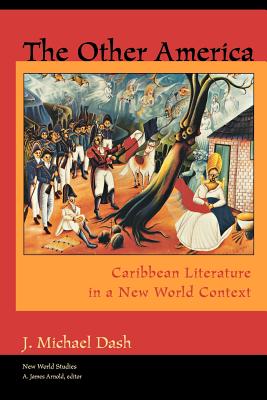 The Other America: Caribbean Literature in a New World Context
The Other America: Caribbean Literature in a New World Context
by J. Michael DashUniversity of Virginia Press (May 29, 1998)
Read Detailed Book Description
In this thoroughly researched new book, J. Michael Dash examines the question of self-definition in the Caribbean. Beginning in nineteenth-century Haiti and ending in today’s Martinique, Dash analyzes he achievements and shortcomings of some of the most important literary efforts in their attempts to come to terms with the region’s characteristics- plantation origins, unfinished modernity, sociocultural heterogeneity, liminality, and archipelagic instability.
—Antonio Benitez-Rojo, Amherst College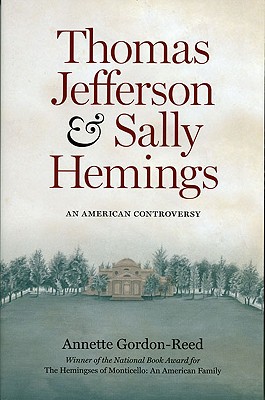 Thomas Jefferson And Sally Hemings: An American Controversy
Thomas Jefferson And Sally Hemings: An American Controversy
by Annette Gordon-ReedUniversity of Virginia Press (Mar 29, 1998)
Read Detailed Book Description
When Annette Gordon-Reed’s groundbreaking study was first published, rumors of Thomas Jefferson’s sexual involvement with his slave Sally Hemings had circulated for two centuries. Among all aspects of Jefferson’s renowned life, it was perhaps the most hotly contested topic. The publication of Thomas Jefferson and Sally Hemings intensified this debate by identifying glaring inconsistencies in many noted scholars’ evaluations of the existing evidence. In this study, Gordon-Reed assembles a fascinating and convincing argument: not that the alleged thirty-eight-year liaison necessarily took place but rather that the evidence for its taking place has been denied a fair hearing.Friends of Jefferson sought to debunk the Hemings story as early as 1800, and most subsequent historians and biographers followed suit, finding the affair unthinkable based upon their view of Jefferson’s life, character, and beliefs. Gordon-Reed responds to these critics by pointing out numerous errors and prejudices in their writings, ranging from inaccurate citations, to impossible time lines, to virtual exclusions of evidence?especially evidence concerning the Hemings family. She demonstrates how these scholars may have been misguided by their own biases and may even have tailored evidence to serve and preserve their opinions of Jefferson. This updated edition of the book also includes an afterword in which the author comments on the DNA study that provided further evidence of a Jefferson and Hemings liaison.Possessing both a layperson’s unfettered curiosity and a lawyer’s logical mind, Annette Gordon-Reed writes with a style and compassion that are irresistible. Each chapter revolves around a key figure in the Hemings drama, and the resulting portraits are engrossing and very personal. Gordon-Reed also brings a keen intuitive sense of the psychological complexities of human relationships?relationships that, in the real world, often develop regardless of status or race. The most compelling element of all, however, is her extensive and careful research, which often allows the evidence to speak for itself. Thomas Jefferson and Sally Hemings: An American Controversy is the definitive look at a centuries-old question that should fascinate general readers and historians alike.
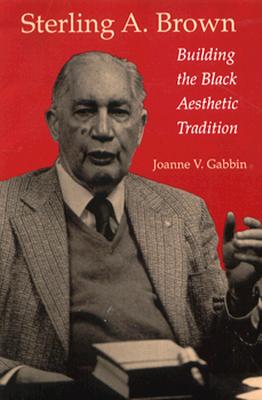 Sterling A. Brown: Building the Black Aesthetic Tradition
Sterling A. Brown: Building the Black Aesthetic Tradition
by Joanne V. GabbinUniversity of Virginia Press (Jul 29, 1994)
Read Detailed Book Description
Sterling A. Brown’s achievement and influence in the field of American literature and culture are unquestionably significant. His poetry has been translated into Spanish, French, German, and Russian and has been read in literary circles throughout the world. He is also one of the principal architects of black criticism. His critical essays and books are seminal works that give an insider’s perspective of literature by and about blacks. Leopold Sedar Senghor, who became familiar with Brown’s poetry and criticism in the 1920s and 1930s, called him "an original militant of Negritude, a precursor of our movement." Yet Joanne V. Gabbin’s book, originally published in 1985, remains the only study of Brown’s work and influence. Gabbin sketches Brown’s life, drawing on personal interviews and viewing his achievements as a poet, critic, and cultural griot. She analyzes in depth the formal and thematic qualities of his poetry, revealing his subtle adaptation of song forms, especially the blues. To articulate the aesthetic principles Brown recognized in the writings of black authors, Gabbin explores his identification of the various elements that have come together to create American culture.
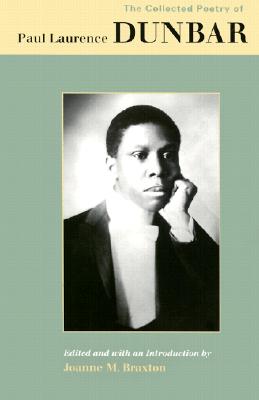 The Collected Poetry of Paul Laurence Dunbar
The Collected Poetry of Paul Laurence Dunbar
by Paul Laurence Dunbar and Joanne M. Braxton (editor)University of Virginia Press (May 29, 1993)
Read Detailed Book Description
This new “most complete” edition of the collected poems of Paul Laurence Dunbar, the virtual father of black American poetry, includes sixty poems not included in the previous—and now out of print—Complete Poems. Sixteen of these were found in manuscript form.
Paul Laurence Dunbar’s work achieved wide recognition in the first part of the twentieth century. The author of six volumes of poetry, as well as novels, librettos, songs, and essays, he was nationally known and accepted by black and white readers alike.
As Joanne M. Braxton points out in her substantive introduction to this edition, a reconsideration of Dunbar’s work and influence is long overdue: “We reclaim, in Paul Laurence Dunbar, a significant American author whose career transcends race and locality even while he makes use of racialized and regional cultural materials to create an African-American aesthetic and a unique black poetic diction.”
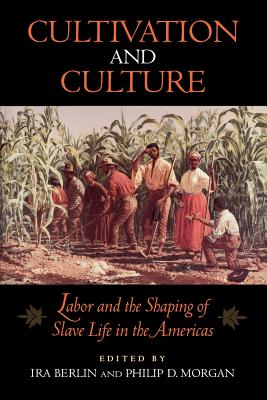 Cultivation and Culture: Labor and the Shaping of Slave Life in the Americas
Cultivation and Culture: Labor and the Shaping of Slave Life in the Americas
by Ira BerlinUniversity of Virginia Press (Apr 29, 1993)
Read Detailed Book Description
Ira Berlin is Professor of History at the University of Maryland. His publications include, with Philip D. Morgan The Slaves’ Economy: Independent Production by Slaves in the New World and as, chief editor, Freedom: A Documentary History of Emancipation. Philip D. Morgan is Associate Professor of History at Florida State University. His publications include Slave Counterpoint: Black Culture in the Eighteenth-Century Chesapeake and Lowcountry and, with Bernard Bailyn, Strangers within the Realm: Cultural Margins of the First British Empire.
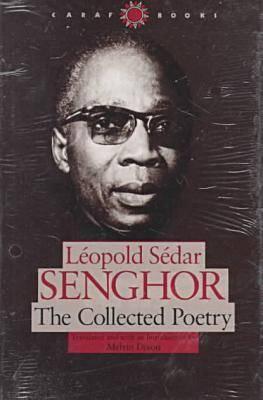 The Collected Poetry
The Collected Poetry
by Léopold Sédar SenghorUniversity of Virginia Press (Nov 20, 1991)
Read Detailed Book Description
Leopold Sedar Senghor was not only president of the Republic of Senegal from 1960 to 1981, he is also Africa’s most famous poet. A cofounder of the Negritude cultural movement, he is recognized as one of the most significant figures in African literature. This bilingual edition of Senghor’s complete poems made his work available for the first time to English-speaking audiences. His poetry, alive with sensual imagery, contrasts the lushness and wonder of Africa’s past with the alienation and loss associated with assimilation into European culture. Translator Melvin Dixon places Senghor’s writing in historical persepctive by relating it to both his political involvement and his intellectual development.
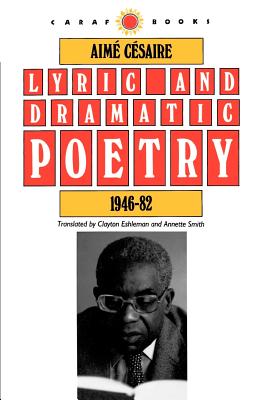 Lyric and Dramatic Poetry, 1946-82 (CARAF Books: Caribbean and African Literature translated from the French)
Lyric and Dramatic Poetry, 1946-82 (CARAF Books: Caribbean and African Literature translated from the French)
by Aimé CésaireUniversity of Virginia Press (Sep 03, 1990)
Read Detailed Book Description
Aime Cesaire has been described by the Times Literary Supplement as likely to "figure alongside the Eliot-Pound-Yeats triumvirate that has dominated official poetic culture for more than fifty years." He was a cofounder and exponent of the concept of negritude and is a major spiritual, political, and literary figure.Cesaire has been read politically as a poet of revolutionary zeal since the 1960s. This collection, the only one in existence in any language to give a truly comprehensive retrospective of Cesaire’s poetic production, demonstrates the narrowness of earlier readings that grew out of the climate of Black Power influenced by the essays of Frantz Fanon, another Martinican, who was largely responsible for the ambient view of Csaire a generation ago. It is the first collection to translate And the Dogs Were Silent and i, laminaria…Lyric and Dramatic Poetry, 1946-82 goes beyond anything else in print (in French or in English) in that it locates the issues of Cesaire’s struggle with an emerging postmodern vision. It will place Cesaire in a strategic position in the current debate in the U.S. over emergent literature and will show him to be a major figure in the conflict between tradition and contemporary cultural identity.
